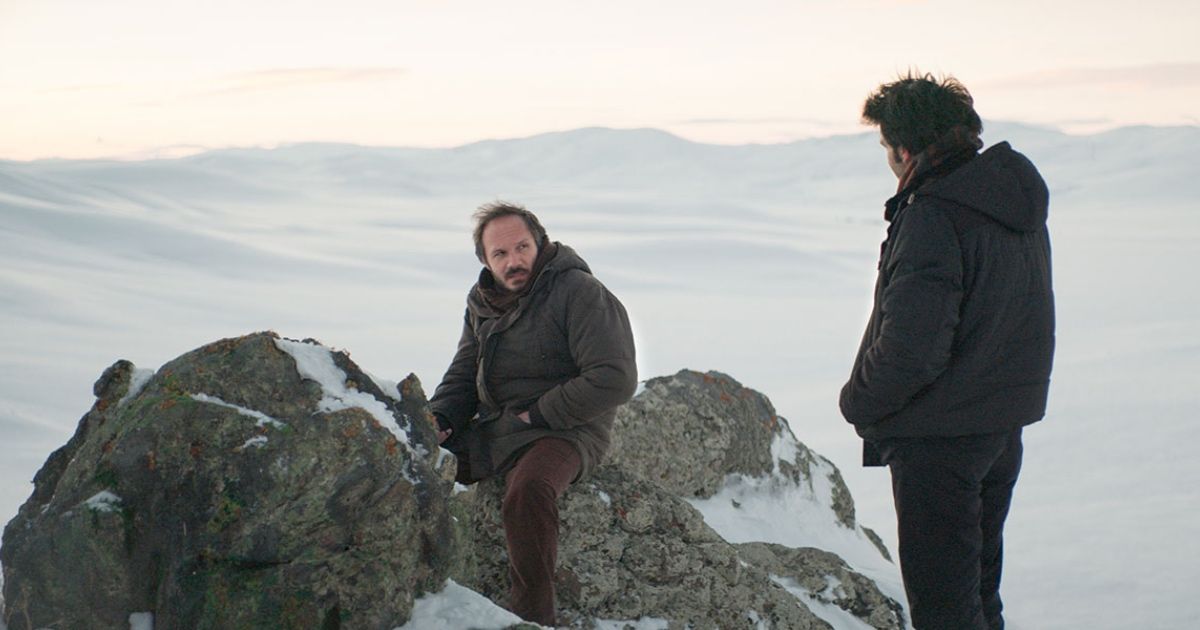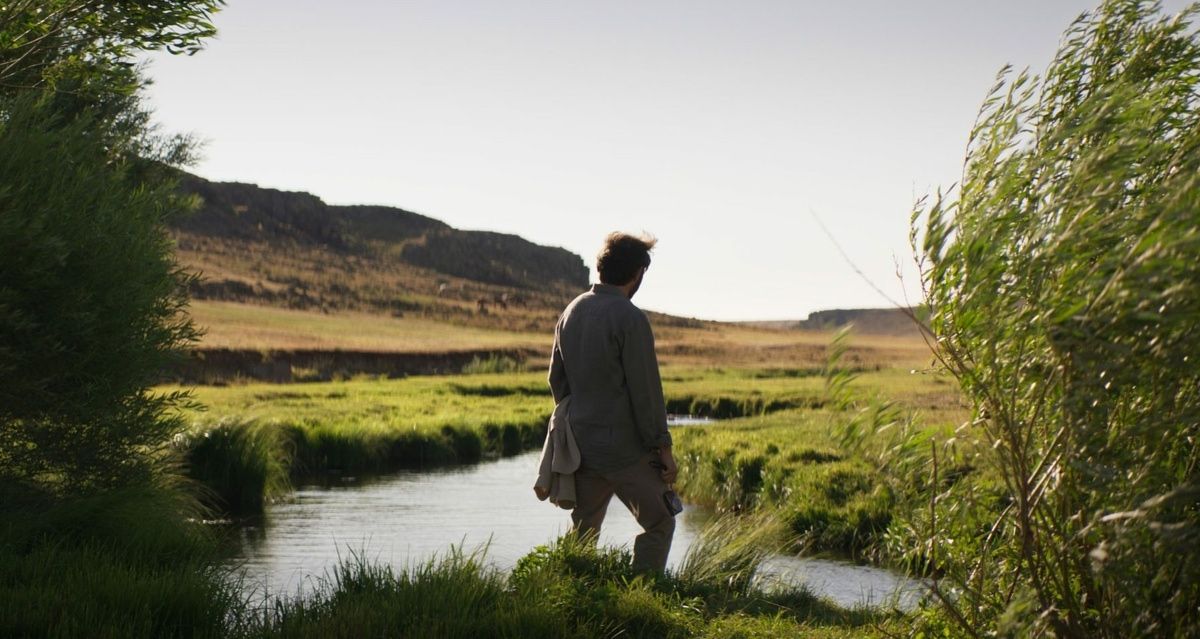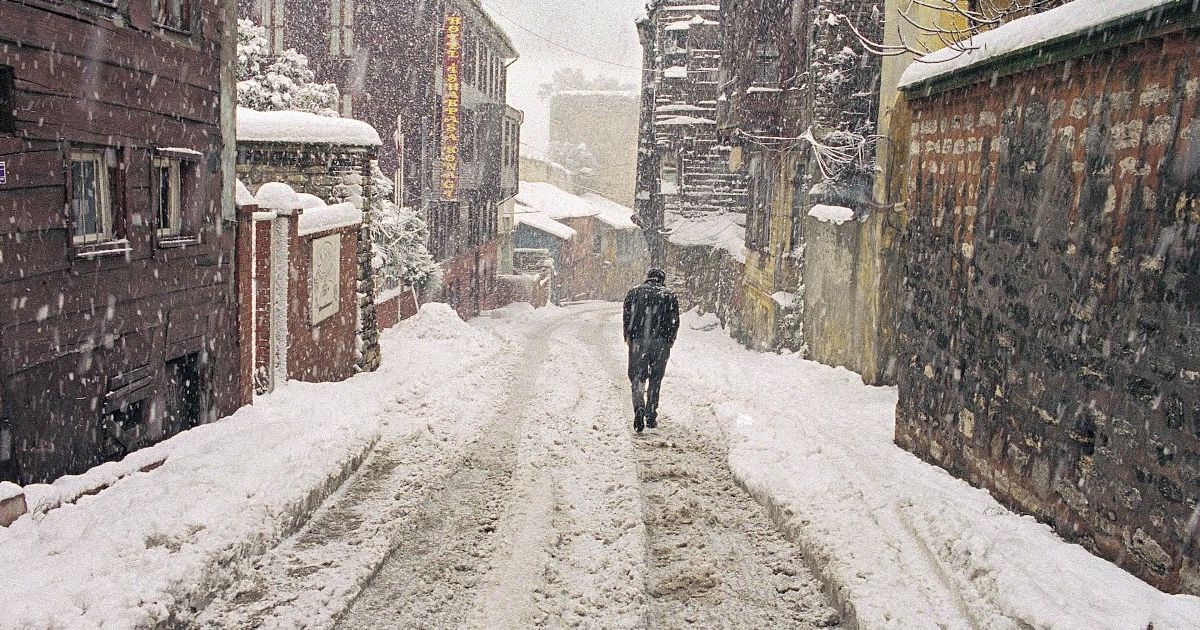One of the biggest forces in Turkish cinema in the past few decades has been director Nuri Bilge Ceylan. The Istanbul-born director became well-known in 2008 when his film Three Monkeys landed him the Best Director award at the Cannes Film Festival. Several years later, his movie Once Upon a Time in Anatolia won the Grand Prix award at Cannes, showing that he has continuously been one of the biggest names coming out of contemporary international cinema. In 2023, he has returned with his latest movie: About Dry Grasses. An epic three and a half hour story, it certainly catches all the verisimilitude one needs from these kinds of films, properly immersing you in its lengthy experience.
The movie first premiered at the Cannes Film Festival, where lead actor Merve Dizdar became the first Turkish actor to win the Best Actress award. It has since been nominated as Turkey’s entry for the Academy Awards, and although it may be unlikely that it lands a spot on the longlist, it is a fierce competition. About Dry Grasses has been released in Turkey since the Cannes Film Festival premiere, and is making its way through the international film festivals like Chicago and the New York Film Festival.
In the movie, Deniz Celiloglu stars as Samet, a jaded art teacher working in the rural areas of Turkey. The movie tracks his selfishness and how he engages in a relationship with one of his students: Sevim. Somewhere along the way, he becomes closer to his roommate and coworker, who is accused of sexually assaulting and abusing the students along with him, and they become friends with a woman and fellow teacher who survived a terrorist explosion — but not without losing her leg in the process.
The Story of One Selfish Man in Rural Turkey
The protagonist of this epic story is Samet, an art teacher working in rural Turkey. He used to teach in Istanbul, but has been assigned to this remote village. He absolutely hates the area, and from what we can see, there isn’t much to this town. Sweeping camera shots over the landscape show that it’s perpetually snowing, and in some moments, the characters huddle inside their homes because the snow is so bad. However, in his daily work life, Samet has shown a fondness towards a young female student named Sevim in his classes, and other students have noticed she gets special treatment from him.
Everything begins to change when a mandatory bag check is performed on all the students, and the faculty digs out a love letter from Sevim’s bag. Samet goes to the teacher’s lounge and retrieves the letter, keeping it at his teacher’s desk. But when Sevim comes to beg him for the letter back, Samet refuses and lies to her, claiming that he ripped up the letter and it no longer exists. Samet still does not give the letter back to her even after she starts crying, and that sparks one of the driving conflicts of the movie: Sevim and her friend Aylin supposedly report Samet and his roommate and coworker, Kenan, for being inappropriate with female students.
Kenan and Semat are left off the hook with no investigation, but this sparks a deeper friendship between the two. Together, they meet a woman, Nuray, who teaches in a nearby village, and they become a trio for a bit. Samet notes that Kenan has a deeper interest in Nuray than he does, as the two have major potential for a romantic relationship due to this. He spots Nuray getting into Kenan’s car at one point, implying that the two might be doing things without him. That lays the seeds for Samet's later actions in the movie, even when the film jumps into an odd moment where he wanders off-set, past all the crew, to go to the bathroom.
The three continue meeting in the meantime, and when Samet catches wind from a coworker that the two students mainly accused Kenan, he begins to get in his head that Kenan might not be who he said he is this entire time. So begins the driving force for the rest of the movie, as Samet now has to grapple with the impacts of what the girls did while at school, how they continue trying to report him, how his anger causes him to lash out at the class, and the growing affection he now feels for Nuray due to his discontent with Kenan.
A Movie Filled with Poetry
Turkish cinema has really established itself in recent years, and, like many other regional and national cinemas, has its own language and ways of doing things. At its core, About Dry Grasses is a very Turkish film from the style of filmmaking and even the dialogue itself. Certain monologues and scenes unfold like poetry, making connections between the human spirit, selfishness, and everyday objects we typically pass by and don’t even know the names for. One of the film’s most striking monologues is a voiceover that occurs in its final moments, as Samet prepares himself for the next journey beyond the world he has been living in for some time now.
And while the snowy landscapes might be stifling for Samet and other characters, it’s all filmed gorgeously, showing how small this village and their many issues are in the grand scheme of things. As a character, Samet is incredibly selfish and only cares about himself half of the time, making the film mildly insufferable as he lashes out against people who don’t deserve the kind of language and vile he’s throwing at them. There’s an implication that Sevim’s love letter might even be for him, and when she begins to resist against his little game, it only sparks the flames of anger in Samet even more.
But despite this polarizing character, what movies like About Dry Grasses do so well is humanize these kinds of people. In an extended argument scene with Nuray, after they eat dinner together, we get incredible insight into both of these characters and their perspectives on the world and its people. Samet believes in order in society, which director Ceylan juxtaposes with the subtle hints of political and religious conflict happening in the region through images, people depicted, and the clash verbally between rural and urban living. Those like Samet look down on the rural way of living, hence his disdain for everything and anything to do with the town he has been assigned to.
Polarizing Conversations and Characters
Central to the plot of About Dry Grasses is its male protagonist’s anger at how Sevim, who was his favorite student, turns her back on him and betrays Samet by supposedly reporting him to the school board. Encoded within the DNA of the film is a very particular brand of masculine rage, as Samet embodies something sinister when it comes to the patriarchy and power dynamics within the film. He is the one to initiate friendliness with an underage, female student, giving her gifts and even putting his arms around her shoulders. Even his male students speak up early in the film about how he favors Sevim and her friends, implying that this is obvious to everyone around them.
Yet, at the same time, he is able to get away with it. He smooth talks his way out of the report with Kenan when they are confronted by the head of the school district, and when he decides to make a move on Nuray, he often talks over her when trying to have a conversation. This isn’t a protagonist that’s meant to be liked in the long run, and even towards the end of the film, he admits that he isn’t the definition of someone the village people will keep in touch with. When he has outbursts with his students, he truly says some awful things, implying someone like him is wallowing in his misery and simply taking it out on everyone around him.
About Dry Grasses clocks in at over 200 minutes, and as it limps towards the end, the script actually reveals some of its greatest moments. The poetry and narrative all merges in a beautiful way at the very end of the film, but it certainly is quite the exhausting journey to get to that point. This is a philosophically demanding movie, and each actor brings their best in front of the camera. Very few would be able to get away with a movie like this, but Ceylan does it well with the hand of a master filmmaker.
About Dry Grasses was screened at the 2023 New York Film Festival.



Comments
Post a Comment